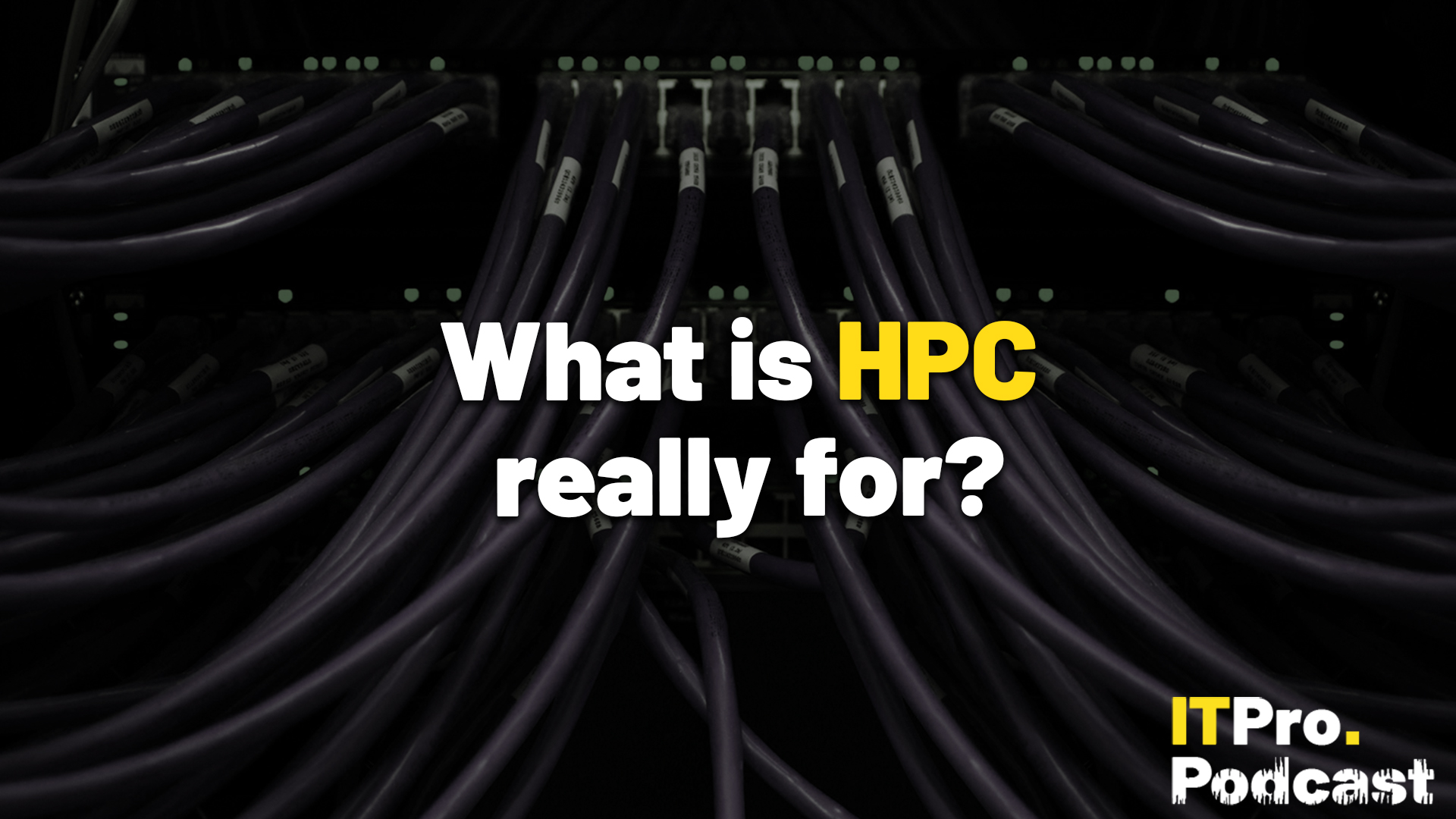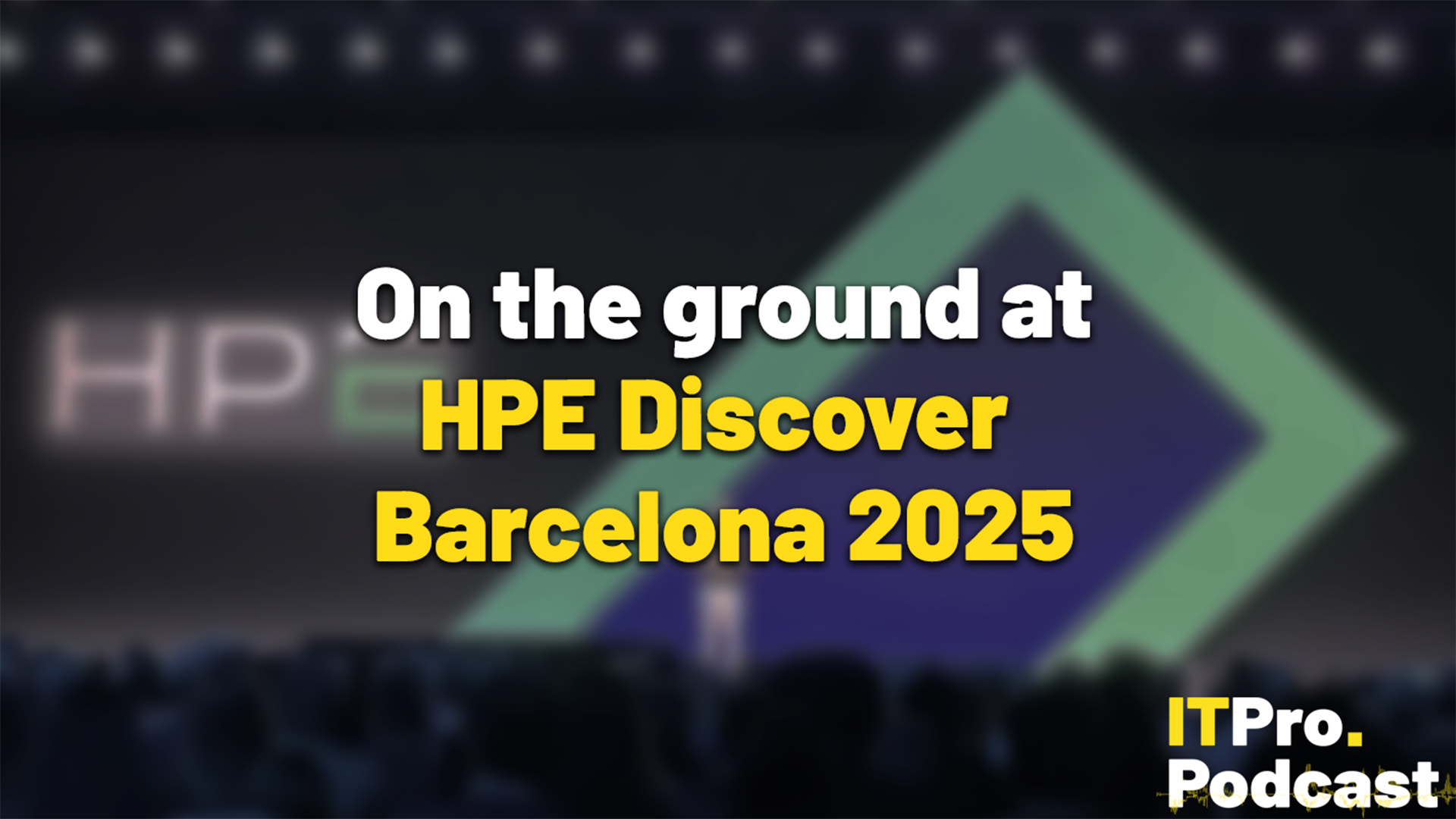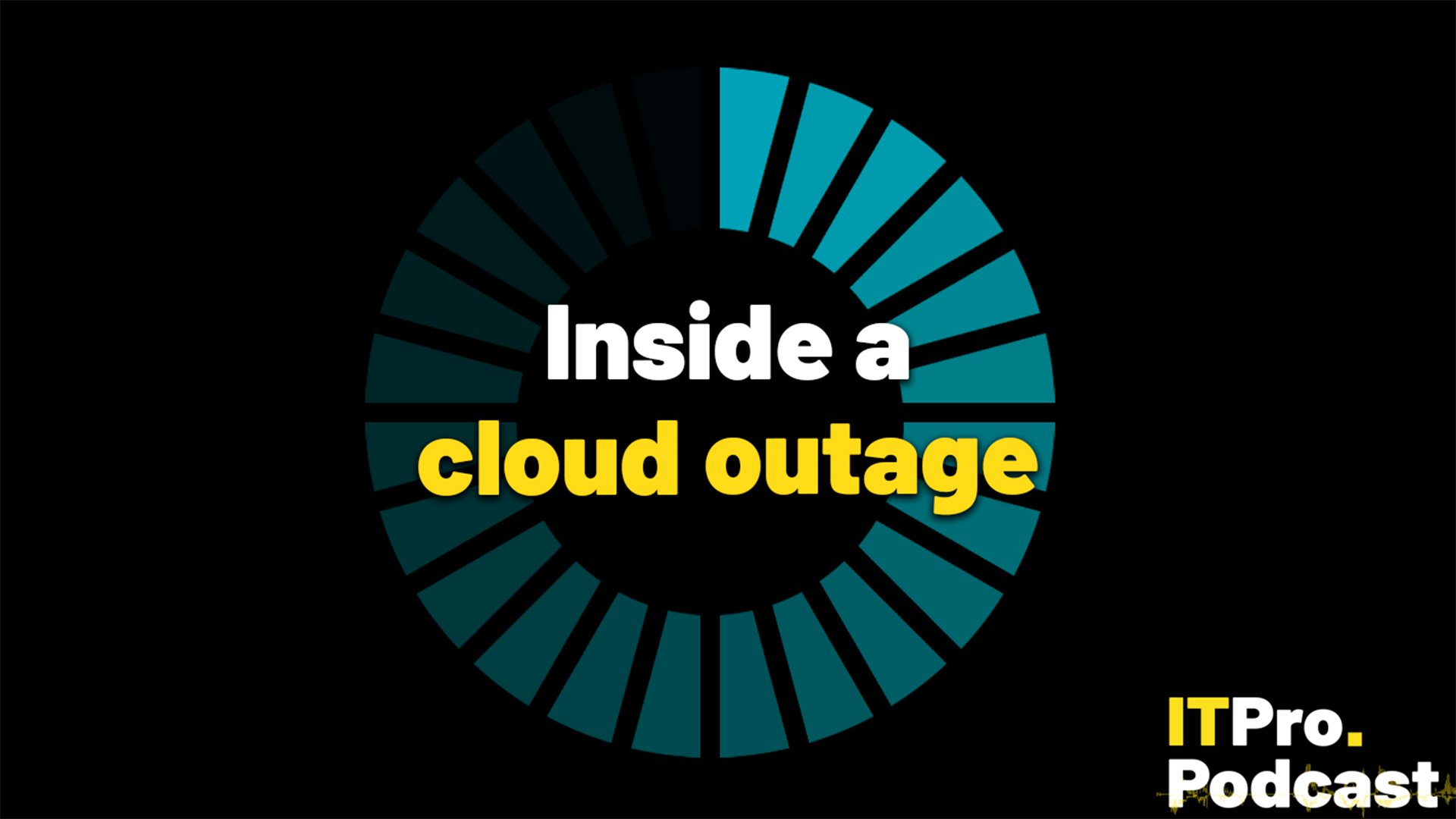What is HPC really for?
High-performance computing HPC is often touted as an area of major tech breakthroughs – but what are these and who is leading the charge?


When it comes to some of the tech world’s most impressive offerings, high-performance computing (HPC), also known as supercomputing, often rises to the top of the list. Referring to powerful systems used to crunch the most complex calculations or run incredibly demanding workloads, it’s a rapidly expanding field backed by significant investment.
In this episode, Jane and Rory discuss the current state of HPC, some of the standout companies and projects in the field, and where it’s headed in the future.
Highlights
“As you might expect, high-performance computing isn't your common or garden computing, you're not going to use it to do anything that doesn't require an awful lot of power. We use it for things such as climate modeling, there’s a lot of scientific research which uses high-performance computing. It’s for when you need to crunch an awful lot of data … and do it in a period of time that isn't going to take you perhaps decades.”
RELATED RELATED

“What's interesting is Frontier, which you mentioned earlier as the crown jewel for HPE as the most powerful supercomputer in the world, is actually number 11 on the [Green500] list. So not only is it the most powerful computer in the world, it's among the top in terms of energy efficiency as well.”
“Ultimately, geopolitics moves fast whereas building supercomputers doesn't. They need special infrastructure, they need special buildings set aside for them, warehouses set up to have them in, and all that kind of thing that takes time, procurement takes time, building takes time. So you might be friendly, at the moment, with another country and you can freely or freely-ish use some of their supercomputing capacity. But that doesn't necessarily mean that you will be forevermore and also that's going to be a question of national security.”
Footnotes
- UK supercomputer boom as HPE and Dell receive funding for new AI cluster
- How the University of Bristol is empowering its academics while meeting UK supercomputing ambitions
- Isambard-AI, the UK’s most powerful and sustainable supercomputer, is now up and running
- What is exascale computing?
- World's first exascale supercomputer revealed
- HPE supercomputer push continues with Aurora
- HPE offers up HPC for AI training with GreenLake for Large Language Models
- Nvidia and Microsoft team up to build 'most powerful' AI supercomputer
- $100 billion to build an AI model? Anthropic CEO Dario Amodei predicts soaring AI training costs – but models will become far more powerful
Subscribe
- Subscribe to The IT Pro Podcast on Apple Podcasts
- Subscribe to The IT Pro Podcast on Spotify
- Subscribe to the IT Pro newsletter
- Join us on LinkedIn
Sign up today and you will receive a free copy of our Future Focus 2025 report - the leading guidance on AI, cybersecurity and other IT challenges as per 700+ senior executives

Rory Bathgate is Features and Multimedia Editor at ITPro, overseeing all in-depth content and case studies. He can also be found co-hosting the ITPro Podcast with Jane McCallion, swapping a keyboard for a microphone to discuss the latest learnings with thought leaders from across the tech sector.
In his free time, Rory enjoys photography, video editing, and good science fiction. After graduating from the University of Kent with a BA in English and American Literature, Rory undertook an MA in Eighteenth-Century Studies at King’s College London. He joined ITPro in 2022 as a graduate, following four years in student journalism. You can contact Rory at rory.bathgate@futurenet.com or on LinkedIn.
-
 TPUs: Google's home advantage
TPUs: Google's home advantageITPro Podcast How does TPU v7 stack up against Nvidia's latest chips – and can Google scale AI using only its own supply?
-
 On the ground at HPE Discover Barcelona 2025
On the ground at HPE Discover Barcelona 2025ITPro Podcast This is a pivotal time for HPE, as it heralds its Juniper Networks acquisition and strengthens ties with Nvidia and AMD
-
 Inside a cloud outage
Inside a cloud outageITPro Podcast Businesses must adopt proactive planning for cloud outages – but what does that look like?
-
 October rundown: AWS chaos and supercomputers surging
October rundown: AWS chaos and supercomputers surgingITPro Podcast As the dust settled on the AWS outage, the US Department of Energy announced a slew of new supercomputers for national security
-
 Is all-photonics the future of networking?
Is all-photonics the future of networking?ITPro Podcast Using light to transmit data rather than relying on electronic components could slash latency
-
 Future-proofing AI infrastructure
Future-proofing AI infrastructureSponsored Podcast Constructing the future of the tech sector can only be done with a strategic approach and access to the best tools
-
 Can better connectivity boost rural business?
Can better connectivity boost rural business?Podcast Rural businesses are still offered speeds far below the UK government’s gigabit target
-
 The dark side of Irish data centers
The dark side of Irish data centersITPro Podcast As Ireland grapples with data center energy demands, we ask if software developers can really benefit from virtual reality

